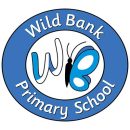Curriculum Intent Statement
The curriculum at Wild Bank intends for each pupil to experience a wide breadth of study and have long-term memory of an ambitious body of procedural and semantic knowledge. We strive to provide our children with the opportunities to become life longer learners, with the skills they need to grow and thrive.
Curriculum drivers shape our curriculum. They are derived from an exploration of the backgrounds of our students, our beliefs about high quality education and our values (SPARKLE). They are used to ensure we give our students appropriate and ambitious curriculum opportunities. Our four key drivers for our school curriculum are:
RETENTION OF LONG-TERM KNOWLEDGE
Learning is a change to long term memory. Cognitive science tells us that working memory is limited and that cognitive load is too high if students are rushed through content. This limits the acquisition of long term memory. Cognitive science also tells us that in order for students to become creative thinkers, or have a greater depth of understanding they must first master the basics, which takes time. The timescale for sustained mastery or greater depth in Wild Bank is two years of study for Art, History and Geography and regular revisits for other foundation subjects, ensuring that we always use the two-year cycle of basic, advancing and deep. Our curriculum distinguishes between subject topics and key concepts. Subject topics are the specific aspects of subjects that are studied. Key concepts tie together the subjects into meaningful schema. The same concepts are explored in a wide breadth of topics. Through this ‘forwards-and-backwards engineering’ of the curriculum, students return to the same concepts over and over and gradually build an understanding of them.

For each of the threshold concepts there are three milestones (basic, advancing and deep), each includes the procedural and semantic knowledge pupils need to understand the threshold concepts, provides a progression model within the geography curriculum. The goal is for our pupils to display sustained mastery at the “advancing” stage of understanding by the end of each milestone, the most able pupils to have a greater depth of understanding at the “deep” stage and children who have struggled with the concepts to master the basic skills.
VOCABULARY
Explicit teaching of vocabulary and terminology is at the heart of our teaching and learning. Our lesson format ensures that crucial vocabulary is introduced at the start of each lesson. By introducing and explaining new vocabulary, children learn to use words verbally in context which allows them to experiment with language in their own writing. Children will be given multiple opportunities to apply this new vocabulary in a variety of ways so that the new language in retained and stored in their long-term memory. Repetition of vocabulary is planned for throughout topics.
Vocabulary is also displayed around the room and in books so that it is shown to have high value and can be constantly referred to.
ORACY
Our children need to be given the opportunity to verbalise their thoughts and enhance their social, emotional and interpersonal skills. They need the skills to be able to communicate in a wide variety of situations. In every lesson, children are given the opportunity to talk in pairs or groups. Group work skills are taught and children are given regular opportunities to complete group work in all areas of the curriculum. With this regular practice, children will leave Wild Bank with the oracy skills they need in the wider world.
CULTURAL CAPITAL AND LIFE SKILLS
Cultural capital is defined as the accumulation of knowledge, behaviours, and skills that a student can draw upon and which demonstrates their cultural awareness, knowledge and competence; it is one of the key ingredients a student will draw upon to be successful in society, their career and the world of work. We have chosen our topics to build children’s cultural capital. For example; in geography, an appreciation of physical features which influence human activity (farming) or in history, an understanding of how past societies have shaped today (democracy). We also plan in cultural experiences, such as trips to the theatre, museums or hatching chicks in class. We use Picture News every week to build on our knowledge of British Values and make links to the wider curriculum. This is one example of cultural capital at work in our school.
Implementation
What will you see in our lessons?
Our children thrive on repetition. We have ensured that the format of the majority of our lessons is the same throughout school (Years 1-6).
- Revisit (increases both storage and retrieval strength)
- Learning objective
- Lesson structure
- Star words/Vocabulary (vocabulary driver)
- Lesson content
Children know what’s expected of them, it gives them a sense of order and security, and helps them learn. Structure can make children’s lives feel safer and more dependable.
Because learning is a change to long term memory it is impossible to see impact in the short term. We do, however use assessments based on deliberate practice. This means that we look at the practice taking place to determine whether they are appropriate, related to our goals and likely to produce results in the long run. We use comparative judgements in two ways: in the tasks we set and in comparing a student’s work over time. The lesson style will match the depth of expectation.
Academic achievement is only part of the vision for our school. We have our Hidden Curriculum. This is the values we expect every child to show in every lesson. We expect every child to SPARKLE. To show:
- Self-Belief
- Perseverance
- Aspirations
- Respect
- Kindness
- Love of learning
- Empathy
Children will be rewarded for showing these values through Dojo points and knowing that they are doing the right thing. These values weave through every subject and we look for them in the people we study.
If you wish to discover more about the curriculum or have any queries about our curriculum please contact school at admin@wildbank.victoriousmat.org
